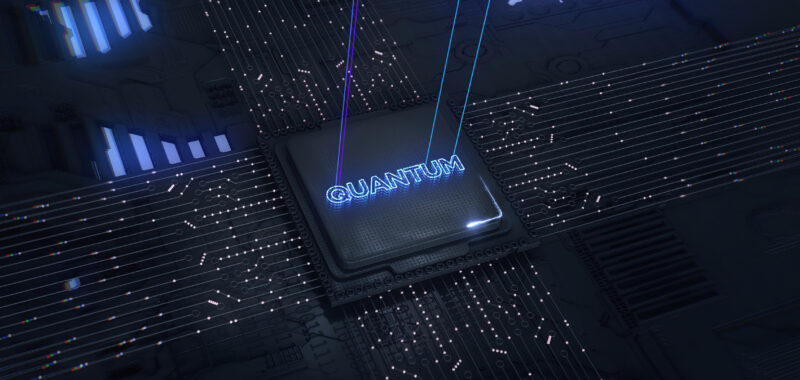What drove IonQ’s stock surge in September? Find out what a major military contract means to this quantum computing pioneer.
Shares of IonQ (IONQ 0.54%) rose 17.8% in September 2024, according to data from S&P Global Market Intelligence. The quantum computing pioneer was having a quiet month for the most part, but its stock chart skyrocketed on potentially game-changing news in the last week. That’s where IonQ signed a substantial contract with the U.S. Air Force Research Lab (AFRL).
Major military contract boosts IonQ’s research efforts
The AFRL deal is a four-year agreement worth $54.5 million. It’s IonQ’s largest contract of 2024, bringing the year-to-date order bookings to a total of $72.8 million.
The company will collaborate with the AFRL to make quantum computing more scalable and easier to deploy. Quantum computing systems are fundamentally different from digital computers, making it difficult to integrate quantum systems with the existing digital infrastructure. In particular, the two organizations will address compatibility with current networking infrastructure.
IonQ took advantage of this announcement’s media spotlight, adding plenty of bullish boilerplate. CEO Peter Chapman reminded investors that IonQ is growing faster than any other pure-play quantum computing company and highlighted the company’s development deals with other groups. The press release reads like a brief overview of IonQ’s business prospects.
The stock gained 28% over the next two days.
Risky business in an exciting market
The AFRL contract is a big step forward for IonQ, and the quantum computing industry should benefit from this effort to integrate new computing methods with existing technologies. At the same time, it should be said that IonQ remains a speculative investment with uncertain long-term prospects.
The company reported a $49 million operating loss in the second quarter of 2024 on $11 million in top-line revenues. I know it’s early, but that’s not a sustainable business model in the long run.
It works for a while when you have solid cash reserves, and IonQ is doing fine from that perspective. The balance sheet has $370 million of cash and short-term investments, mostly culled from the initial public offering in 2021. At the same time, the company is burning through that reserve with $124 million of negative free cash flow per year.
The AFRL contract announcement had some uncomfortable overtones, too. For example, the company presented its high-octane growth in a narrow context:
“No other publicly traded pure-play quantum computing company has nearly doubled revenue each year since going public,” Chapman said. This statement excludes the entire categories of privately held quantum computing experts and larger companies in many other business areas. The company really is outgrowing the remaining handful of rivals, but I think it may be dangerous to ignore the looming shadows of deep-pocketed tech titans.
And the stock itself is risky business. Share prices are nestled almost exactly midway between a 52-week low of $6.22 and high of $16.60 per share. Investors are grabbing shares of a deeply unprofitable business at 63 times sales.
Please check your risk tolerance before buying your first IonQ stub. Quantum computing may be a game-changer, but there are safer and more sensible ways to invest in this emerging market.
Anders Bylund has no position in any of the stocks mentioned. The Motley Fool has no position in any of the stocks mentioned. The Motley Fool has a disclosure policy.

